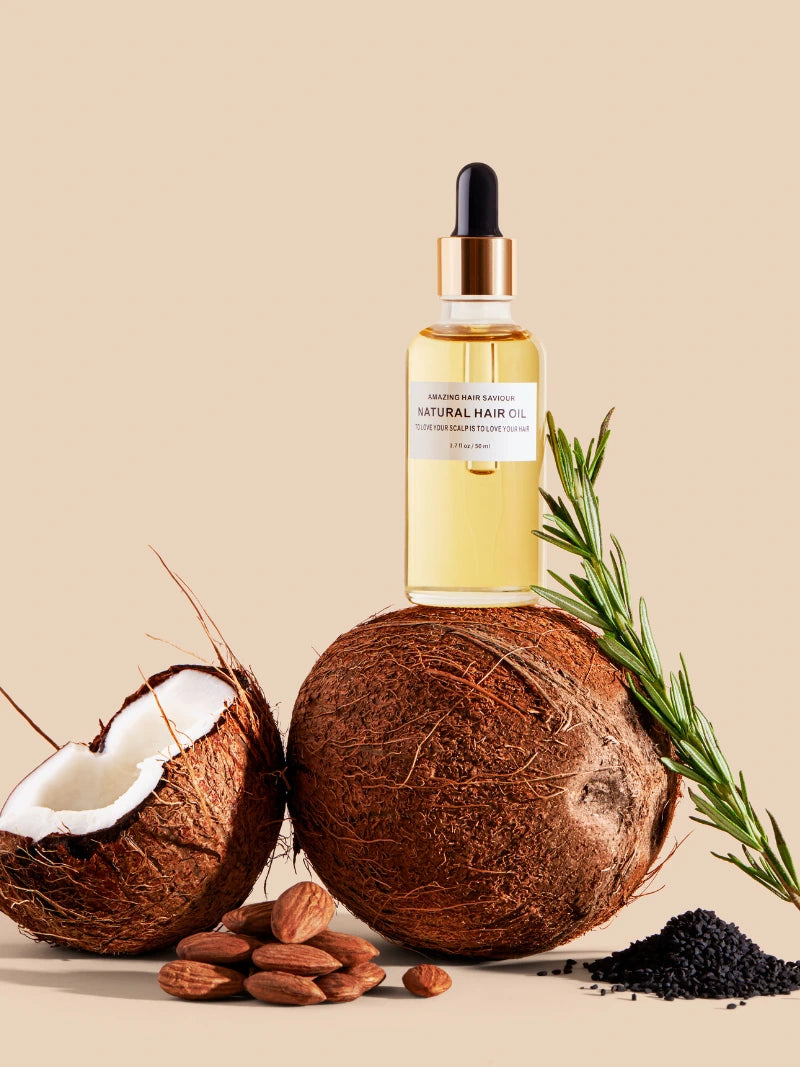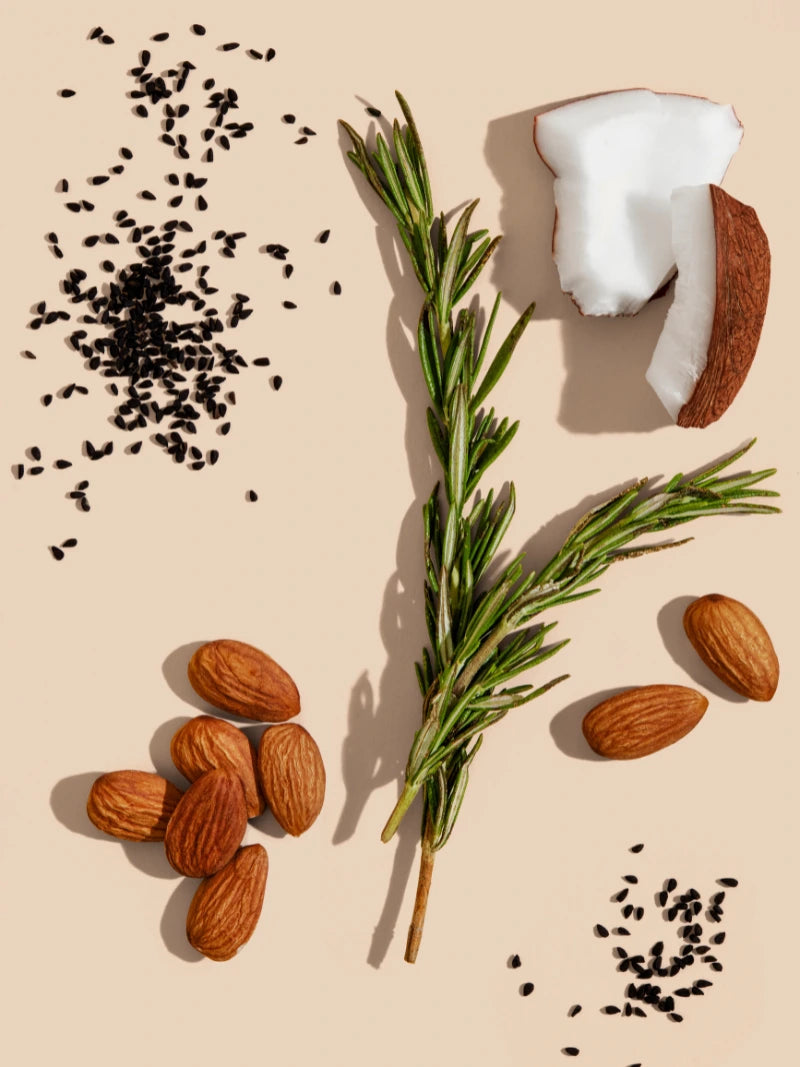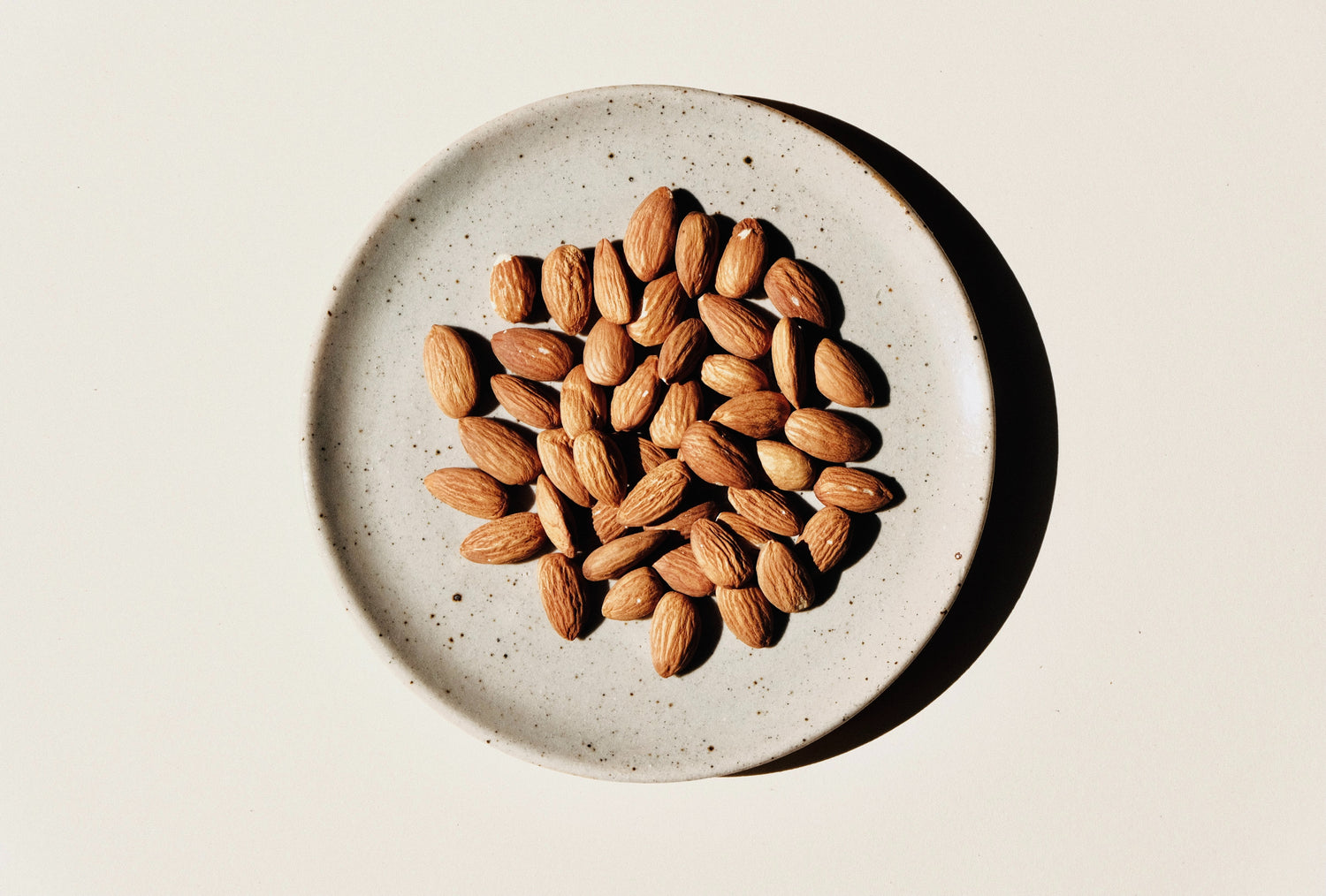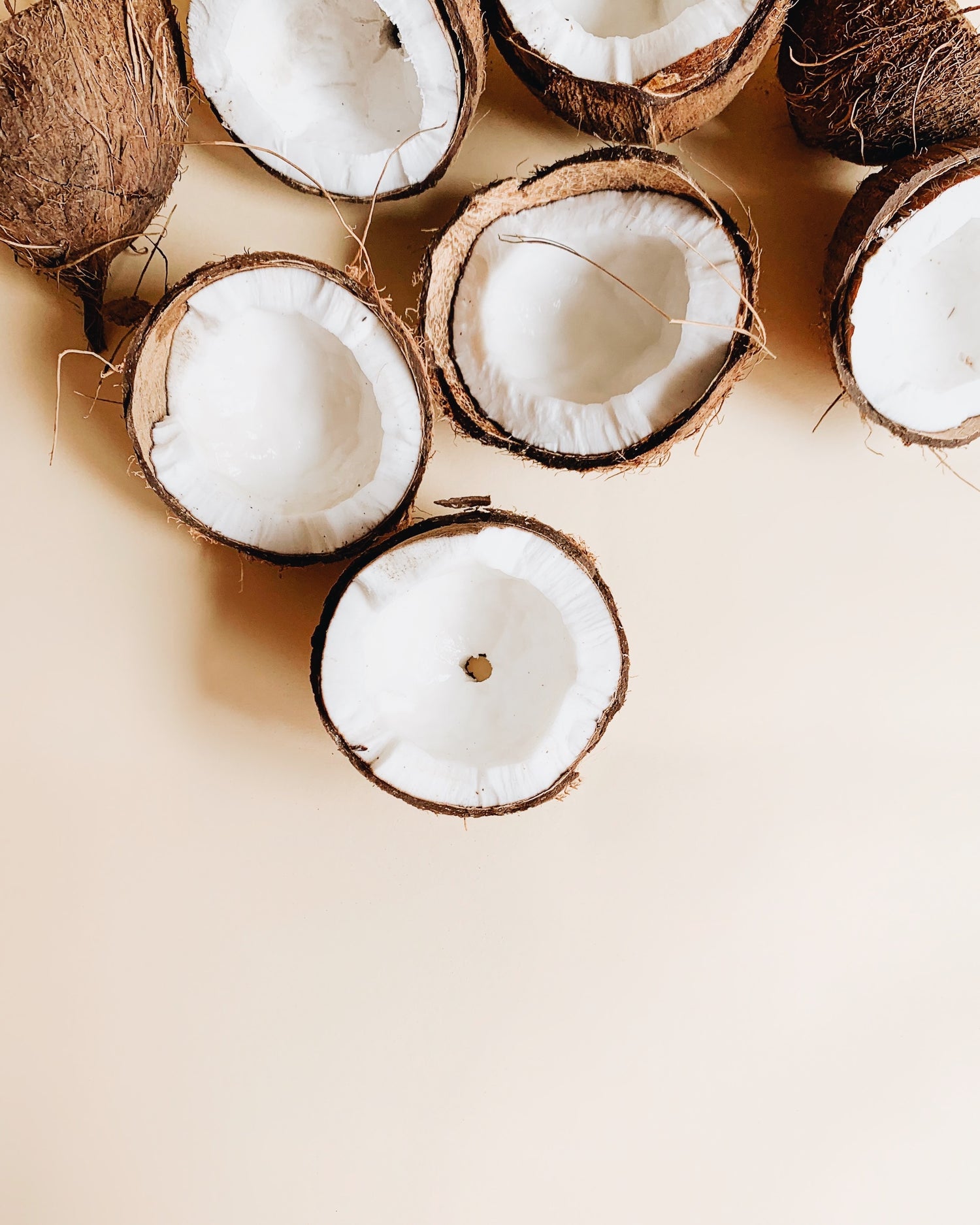The Science
Have you ever wondered why Amazing Hair Saviour uses the ingredients that it does? Learn about the benefits of everything that goes into the hair oil that you know and love by reading studies and trials conducted about the ingredients we use.

Rosemary
A 2015 study compared rosemary oil to minoxidil, a popular hair regrowth treatment. People with DHT-related hair loss received either rosemary oil or minoxidil for 6 months. By the end, both groups saw significant increases in hair growth.
However, the group that was treated with rosemary oil had more hair growth compared to the other.
While the difference was not statistically significant, the results suggest that rosemary oil may promote hair growth in the long term with continued use. In the same study, scalp-itching was more common in the group that received minoxidil, so rosemary oil could be a better option for people with a history of allergies or skin irritation.
A 2013 study involving mice with testosterone-related hair loss found that rosemary oil could regrow their hair. A study published in 2017, found that rosemary oil may kill some fungi and bacteria suggesting that hair loss caused by an infection or unhealthy scalp may be treated with rosemary oil with prolonged use. Alopecia areata is an autoimmune disorder that can cause hair loss. Research published in 1998 looked at the effect of aromatherapy using rosemary oil on people with the condition. Some 44 percent of participants improved with the use of rosemary over 7 months, compared to just 15 percent who received no treatment.
According to some scientific evidence, rosemary may benefit nerve tissue. Carnosic acid, an active ingredient in the plant, was observed to heal tissue and nerve damage in one study. This ability to heal nerve endings may suggest that continued use on the scalp may rejuvenate local nerves thus possibly promoting hair growth.
More revealing recent studies show that rosemary directly helps protect against hair loss. One 2015 trial pitted the essential oil against minoxidil, commercially known as Rogaine. Both were used on human subjects with androgenetic alopecia (male or female pattern baldness).
Results showed that rosemary essential oil was just as effective a minoxidil. During the process, it helped the side effect of itchy scalp more successfully than minoxidil.
Another study of rosemary leaf extract (different from the essential oil) showed it stimulated hair growth. This occurred when hair loss was triggered by testosterone (as in pattern baldness). This study was performed on mice, however.
Two separate clinical reviews — one from 2010 and the other from 2011 — also acknowledged rosemary’s hair growth potential. The former cites a study with successful hair regrowth in people with alopecia who used essential oils.
One of these essential oils was rosemary.
In the latter review, rosemary essential oil was described as a hair loss restorative. This was due to its circulation-improving effects.

The Queen of herbal medicine: Nigella Sativa
Extensive studies of Nigella sativahave been carried out by various researchers and a wide spectrum of its pharmacological actions have been explored which may include antidiabetic, anticancer, immunomodulator, analgesic, antimicrobial, anti-inflammatory, spasmolytic, bronchodilator, hepato-protective, renal protective, gastro-protective, antioxidant properties, etc. Due to its miraculous power of healing,Nigella sativahas got the place among the top ranked evidence based herbal medicines. This is also revealed that most of the therapeutic properties of this plant are due to the presence of thymoquinone which is major bioactive component of the essential oil.

You know her, and you love her: Almond
Almond oil comes from pressing the seeds of the almond tree (almond nuts) and extracting oil from what comes out. Almonds have been valued in many ancient cultures for their healing and health properties, including high levels of protein, omega-9 fatty acids, and vitamin E. These properties suggest that almond oil can improve the shine and strength of your hair. Sweet almond oil Is the oil most commonly sold and recommended for use as a hair product. Keep reading to find out if sweet almond oil is something you should try to make your hair look healthy.

Works as good as it smells: Coconut
Fights Fungal Infections
Healthy hair begins at the root. Keeping your scalp healthy may help your hair grow better.
Coconut oil may help heal or prevent dandruff and other fungi on the scalp. More research is needed to know if coconut oil has the same health benefits on the skin and scalp.
Calms Irritation
Coconut oil is a natural saturated fat. The high fat content in it may help calm scalp irritation, flaking, and itching. The fat in coconut oil can also help seal in hair moisture.
Treats Split Ends
A review in 2015 noted that coconut oil absorbs into hair strands better than mineral oil and other kinds of oils. This might help prevent hair breaking and split ends.
For this reason, you may need fewer trims when you use coconut oil on your hair regularly. This might make it seem like your hair is growing longer, faster.
Another review on the uses of coconut oil in India found that the oil may help reduce protein loss in hair. This prevents dry, brittle, or breaking hair. The researchers note that in India, coconut oil is used both as a hair mask before showering and as a leave-in conditioner after showering.





